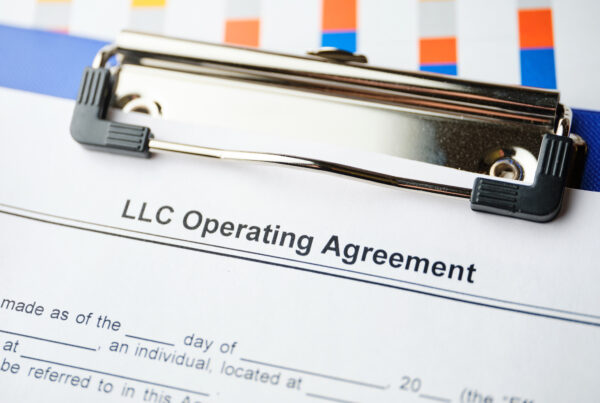Last Updated on February 3, 2024 by Dave Schoenbeck
An all too common problem exists among business owners today: they consider their business ventures the bedrock of their retirement strategies. As a result, many are unknowing – yet willingly – taking a risk by putting all of their golden eggs into one basket.
Research done by the Employee Benefit Research Institute (EBRI) has shown that 48% of all working Americans need to calculate how much money they will need for retirement. Another survey suggests that 2 in 5 Americans will need $1 million to retire. More shockingly, 75% of Americans can expect to see their assets disappear before they die. It is time for business owners to get very serious about doing more to build a diversified portfolio.
I don’t deny the importance of running and growing your own business. But this doesn’t mean you should ignore other opportunities to create personal wealth. Knowledge is power and can only add benefits to your financial situation. This article will discuss helpful personal investment strategies for small business owners that everyone should know.
7 Personal Investment Strategies for Small Business Owners
1. Build an emergency fund.
Before you start investing, start saving.
We all face tough times. There’s no exception. Therefore, it’s essential to establish an emergency cash fund containing enough for at least 6 months of expenses to help weather unforeseen storms.
2. Take a risk tolerance questionnaire.
A risk tolerance questionnaire aims to determine your investor type, mainly when dealing with risks. This, in return, will help you better manage your fear and avoid taking on too much risk.
3. Use an asset allocation model.
I highly recommend using an asset allocation model, which typically divides your investment portfolio into various asset classes, each having a distinctive risk-return characteristic. You can decide on your suitable investments by considering the information about each asset class, risk tolerance, investment objectives, and available capital.
Though many asset allocation programs are on the market, Exchange Traded Funds (ETFs) and mutual funds are usually better options than individual stocks.
4. Establish the scope of your involvement.
Please decide beforehand whether you are comfortable having a professional handle your entire personal investment portfolio or prefer to stay more hands-on and work with an online advisor.
5. Implement a dollar-cost averaging strategy.
Dollar-cost averaging is a common and powerful personal investment method that requires an investor to take a fixed amount of money at regular intervals and put it into a particular investment over a long period. This can help you get into the habit of saving and investing on a smaller scale.
6. Rebalance your portfolio occasionally.
This strategy restores your portfolio and gives you an asset allocation mix. Rebalancing at least twice a year will guarantee that your portfolio does not overly favor specific asset categories over others, which, in turn, will help keep your investments aligned with your business goals and model.
7. Minimize taxes with your investments.
Investing does not come without taxes and hidden fees. Learning how to manage and keep these fees under control is essential from the beginning. Otherwise, you might have to give up more than 30% of your profits. Be sure to speak with an advisor or accountant to learn what you’re responsible for come tax time.
Don’t leave money on the table. Start considering your options and hop on the road to building personal wealth. By following these unique investment strategies for small business owners, you can make wise money decisions and achieve your financial dreams.
If you would like to learn more about personal investment strategies for small business owners, you can schedule a complimentary one-hour coaching session with me, Coach Dave. Please fill out my contact form to get started.
Coach Dave
- Best Practices We Have Learned About Managing Remote Teams - July 3, 2025
- How and When to Use AI for Idea Creation - June 26, 2025
- What Does a Copyright Protect?A Small Business Guide to Copyrighting Your Business - June 19, 2025



